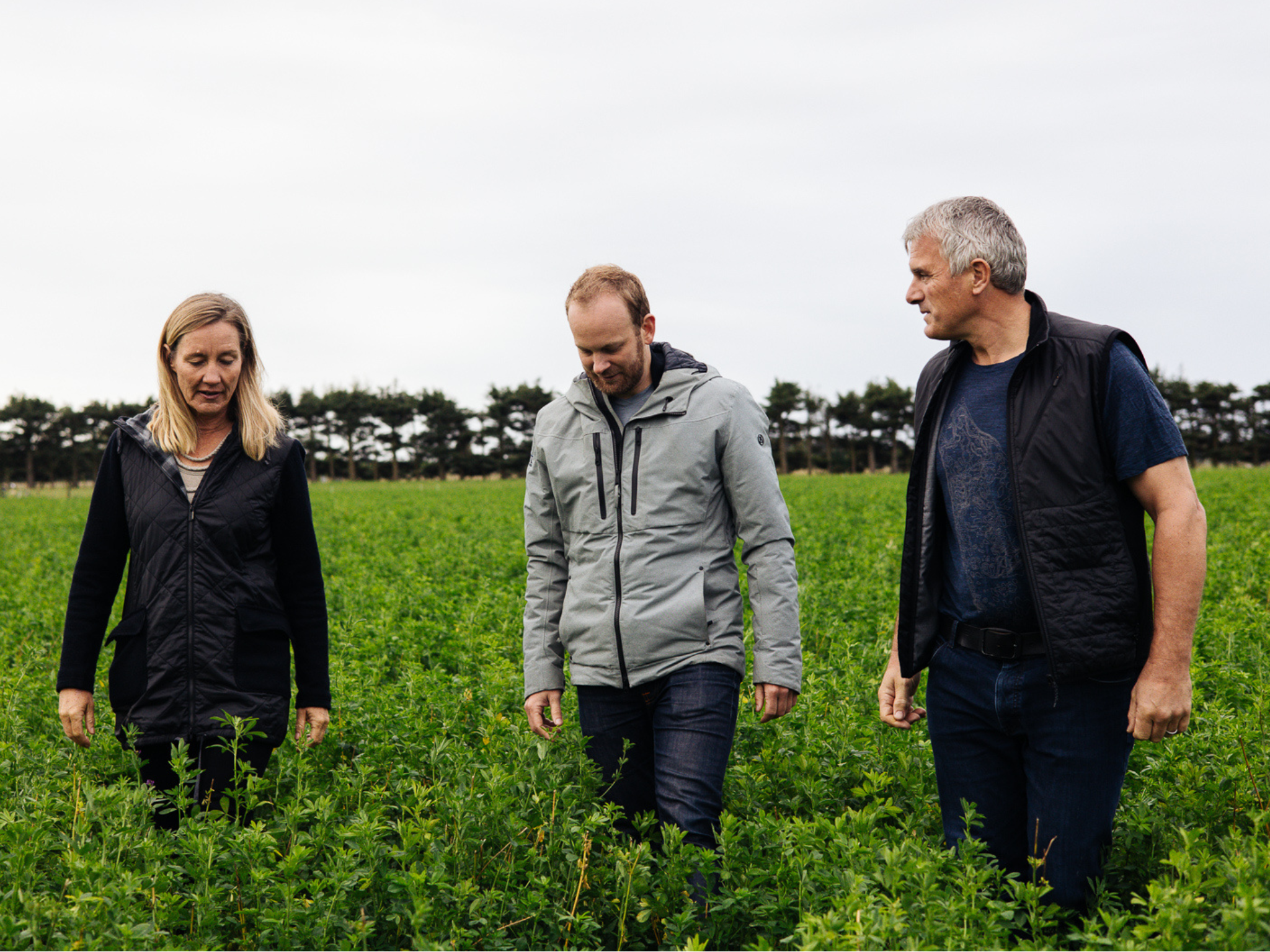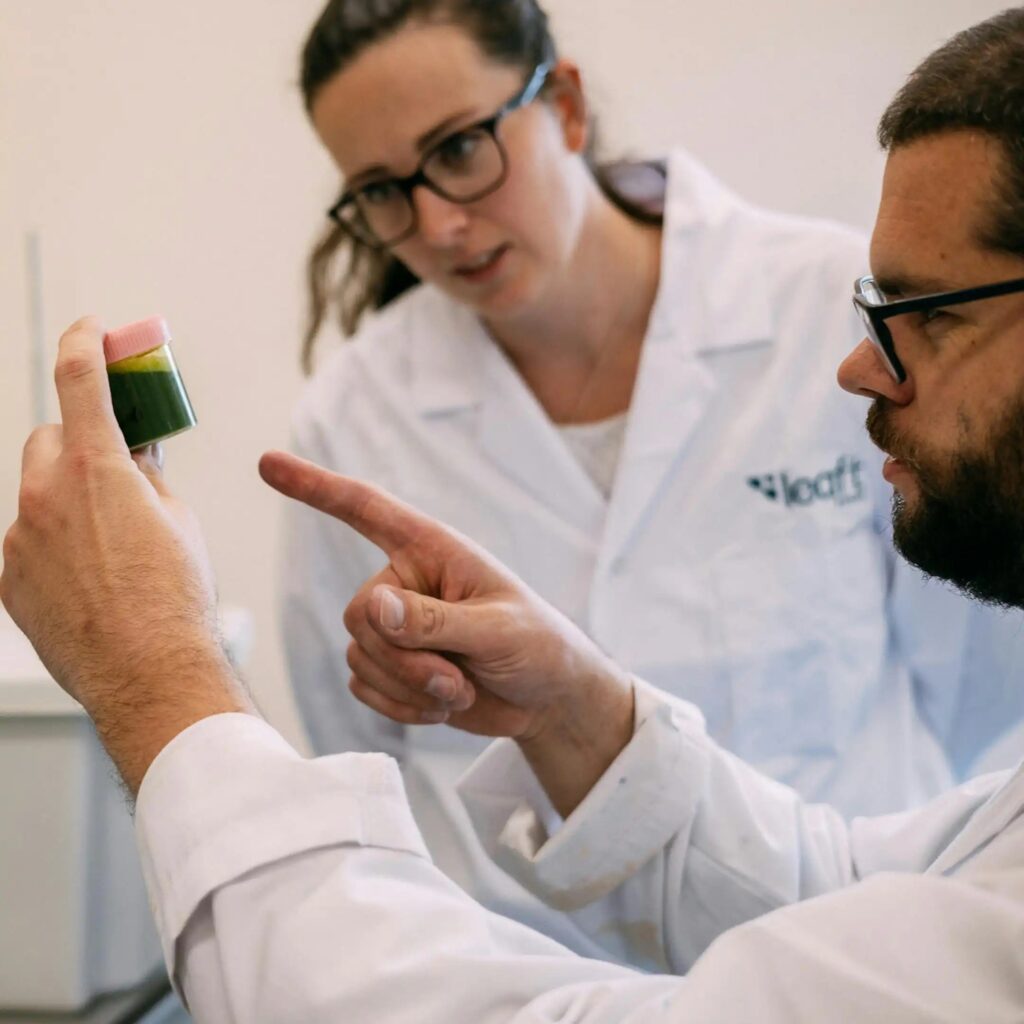
Tokyo-based dairy major Lacto Japan has teamed up with New Zealand startup Leaft Foods to bring its Rubisco protein to the East Asian country.
A Japanese dairy giant is betting on a leaf-derived protein with an amino acid profile superior to whey.
Lacto Japan has partnered with Leaft Foods, a New Zealand-based food tech firm, to commercialise the latter’s Rubsico protein in the local market.
Rubisco, described as the world’s most abundant protein, is found in the leaves – not seeds – of green plants. Leaft Foods derives its ingredient from alfalfa, delivering a complete protein with significant functional, nutritional and environmental gains.
“It is not every day that you discover such an exciting new protein,” said Takeshi Shimizu, Oceania general manager at Lacto Japan. “What impressed us most was not only the protein system itself, but the fact that we have been able to work with it in a range of promising applications from the start.”
He added: “The quality, texture and flavour of the foods produced meet the exceptionally high standards that Japanese consumers expect.”
Rubisco offers superior benefits to whey protein

Scientists have been attempting to extract Rubisco from green leaves for over a century, but most efforts destroyed its delicate structure and rendered it worthless. Leaft Foods says it has developed a gentle, food-safe process that preserves protein integrity and unlocks its full potential.
Its Rubisco protein isolate is rich in vitamins, minerals, antioxidants and micronutrients. The ingredient outperforms plant proteins like pea and soy, as well as animal-derived incumbents such as whey, offering a superior amino acid profile and generating 97% fewer greenhouse gases than the dairy protein.
From a functionality viewpoint, Rubisco boasts foaming, gelling and emulsification properties, setting just like egg whites in baked goods and posing as a clean-label alternative to methylcellulose in plant-based meat.
This performance, the company argues, is delivered through a “commercialised production system that is backed by forward contracts and satisfies both quality and sustainability imperatives”.
Speaking of sustainability, Rubisco is responsible for carbon fixation and has been targeted in studies looking to increase crop yields, which represents its positive potential to produce climate-friendly foods that preserve food security.
In August, Leaft Foods launched its first consumer product in New Zealand, called Leaft Blade. It’s a pre-workout drink with 17g of protein that the body can digest up to six times faster than conventional proteins. It contains 50,000 green leaves in each 100ml serving, alongside L-tyrosine to sharpen focus and support brain function, leucine to trigger growth, and tryptophan to restore balance.
A five-year, multi-million-dollar plan

Leaft Foods has already been delivering commercial-grade Rubisco protein to B2B customers in multiple innovation-driven markets, with the US a key focus.
Now, it’s expanding its footprint to Japan, thanks to the collaboration with Lacto Japan, which has decades of experience in connecting Antipodean ingredient maker to major food players in the East Asian country.
According to Leaft Foods, Lacto Japan’s deep integration within the sector and proven track record with protein ingredients make it an ideal launch partner in the country.
“It has been tremendously exciting to work with Lacto, a capable and innovative partner, as we’ve sought to enter the sophisticated Japanese market,” said John Penno, co-founder of Leaft Foods. “Lacto’s role as our trusted local collaborator has been invaluable in providing essential market and supply chain intelligence and relationship management that can enable successful market penetration.”
The two companies are already in talks with some of Japan’s largest food manufacturers across plant-based foods, bakery products, and sports nutrition categories. They plan to build a business worth tens of millions of dollars in the next five years.
Founded in 2019 by Penno and his wife Maury Leyland, the startup has raised $15M in funding so far, and moved to a 30,000 sq ft commercial-scale demo plant in Canterbury last year, which can produce a tonne of Leaf Rubisco products per week.
It is among a number of startups looking to leverage Rubisco protein, including Plantible Foods, which recently opened its own factory to produce hundreds of tonnes of the protein from duckweed in Texas, Israel’s Day 8, and Dutch player Rubisco Foods.
The post This Japanese Dairy Giant is Embracing A Sustainable Protein from Alfalfa Leaves appeared first on Green Queen.
This post was originally published on Green Queen.